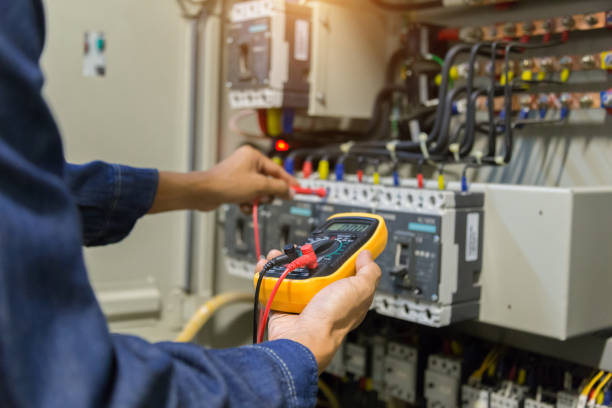What Does a Commercial Electrician Do?
A commercial electrician works to keep electrical components and power lines in your business or office safe and in good condition. They make sure that the right amount of power is available throughout your building and that live wires are kept out of the workplace. They also make sure that you have access to routine maintenance and testing to ensure that the components are safe and functioning correctly.
Work environment
The work environment for commercial electricians is usually indoors, although they may need to work outdoors. They may also have to drive around in a truck and deal with tight spaces. The job can be physically demanding, but proper safety equipment and rules can reduce the risk of injury. Commercial electricians must be familiar with the rules of their industry, including those regarding the use of protective gear.
A commercial electrician's duties are diverse, requiring him or her to pay close attention to the electrical systems in commercial buildings. This often means working in overheated, stressful, and high-temperature conditions. They are responsible for wiring, installation, and repairing electrical systems, and are often responsible for resolving problems such as short circuits and shocks.
A commercial electrician can work alone or as part of a construction crew. In a construction site, they may be responsible for wiring in a building, including the distribution and transmission lines. These electricians may also be required to travel to construction sites to perform their work. In either case, they are likely to work long hours and in dirty environments.
A commercial electrician will usually work as part of a construction crew, so they won't have direct contact with the building owner. Sometimes, they will work on a single large project at a time, or they may be a subcontractor for other construction crews. A commercial electrician will typically work in an open environment with few tight spaces, but he or she may also need to work in high elevations.
Education required
The education required for a career as a commercial electrician depends on the type of work you hope to do. Some electricians specialize in specific areas, such as renewable energy, while others are more generalists. A high school diploma is typically required. There are also apprenticeship programs, which may allow you to earn academic credits while working.
Apprenticeships can be obtained through both unions and non-union employers, and the New York State Department of Labor maintains a list of apprenticeship opportunities. Additionally, in some parts of New York, you can earn a higher degree from a trade school or college. These degrees may reduce the amount of experience you need to pass the master electrician exam.
Depending on your location, an apprenticeship program can take up to four years. Apprentices will receive a certificate at the end of the program. During this time, they will gain valuable hands-on experience. In addition to the classroom classes, apprentices will also be required to complete a 2,000-hour apprenticeship.
Many factories employ maintenance technicians to maintain machinery and ensure that they are in working order. These technicians will also maintain a maintenance log to help senior managers identify aging equipment and make recommendations for new equipment. Having an education in electrical theory, safety, and code requirements is essential for a career as a commercial electrician.
Salary
These data reflect average earnings for workers at all levels of education and experience. They do not represent starting salaries, however. There are many factors that affect a Commercial Electrician's salary. For example, how much experience does the Electrician have? And how much do they make per hour?
The pay of an electrician varies greatly depending on the type of work he or she performs. While electricians who work for a union have better benefits, they are often paid less than their non-union counterparts.
The technical skills necessary for troubleshooting electrical issues and performing installations or repairs can increase the salary of a commercial electrician. Whether they are working at a large commercial building, office building, or industrial facility, electricians are responsible for safely installing, repairing, and maintaining electrical systems. They may also be responsible for removing obstructions to electrical systems and may be called in to handle emergencies.
The demand for electricians is rising in a number of fields, including industrial and commercial construction. High-tech retrofits and other projects are also creating a strong demand for electricians. In addition, electricians enjoy great job security, and nearly half of young electrical professionals chose this career because of its security. According to the Bureau of Labor Statistics, the number of electricians will grow by 10% between 2018 and 2028. However, electricians in these fields will face a shortage of up to 60,000 workers by 2026.
